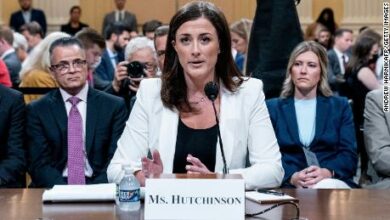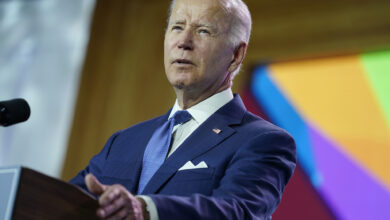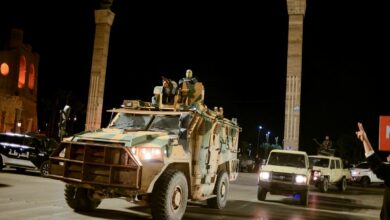In voting for or against the draft constitution this week, Egyptians are determining what principles will guide their leaders in governing the country’s already ailing economy in the coming period, and beyond.
The draft, since it was finalized in late November, has been the subject of intense controversy. Protests over the draft and President Mohamed Morsy’s expansion of powers, which allowed him to expedite the referendum, drew hundreds of thousands of Egyptians to the street, with ensuing violence resulting in the deaths of at least eight.
In addition to doubts concerning the draft’s referendum and formation, during which 22 of the 100-member committee withdrew due to the document’s lack of complete representation, economists say the document contains some serious holes when it comes to laying the ground for Egypt’s economic prosperity.
In the first part of the draft released by the Constituent Assembly, titled “State and Society,” Chapter 3, Clauses 14 through to 30 relate to the economic principles and structure of the country.
The aim of the national economy, according to Article 14 of the draft, is to achieve balanced sustainable development, protect production, increase income and guarantee social justice, solidarity and welfare.
The article also addresses the protection of consumer and laborer rights, the promotion of a fair distribution of wealth, and the elimination of poverty and unemployment.
The draft pledges state protection of agriculture, natural resources, the Nile River, water resources, water surfaces and beaches. Like the previous constitution, it gives ownership of all mineral and natural resources to the people of Egypt.
It also requires that both the state and society protect public funds and private property, confirming that confiscation is prohibited unless it serves “national interests.”
The main issue with these clauses and the constitution’s treatment of the economy, critics say, is its lack of specifics, and failure to acknowledge the bad policies of the past.
“This constitution is not in favor of the poor,” said RedaIssa, an independent economic analyst and member of the Egyptian Association of Citizens against Rising Prices. “The direction of the current regime is clear: It is in favor of the rich.”
Another danger with the current draft, according to critics, is that it fails to spell out the economic and social rights that Egyptians called for during the 25 January uprising.
Issa pointed to the hastily implemented tax laws raising the prices of cigarettes, soft drinks and electricity that were issued last week and then suspended just days later by Morsy, due to popular opposition and disagreement from within the Freedom and Justice Party.
Critics also say the draft constitution ignores the tourism sector and overlooks the rights of tourists, in addition to failing to address the issues of modern communication and information technology.
Adel Ezabi, vice president of the general division of investors at the Federation of Egyptian Industries, said the constitutional articles should be rewritten in more precise legal language. The clauses, as they currently stand, he said, are open to a vast number of interpretations.
Article 14, for example, says Egypt has a “national economy” which is aimed at achieving sustainable development and production. The clause does not specify the type of economic system, whether it is a free market economy, an economy governed by Islamic principles or a mixed economy.
“It is also better to use the expression ‘economic system’ instead of the ‘national economy,’” Ezabi said during a debate on the economic articles in the draft constitution held at the Center for International Private Enterprise last month.
Some also say the draft enshrines some of the detrimental economic policies of former President Hosni Mubarak’s regime.
Amr Adly, director of the economic and social justice unit at the Egyptian Initiative for Personal Rights, said the treatment of the economy in the draft constitution is a product of the document’s hurried formation and approval, expedited by Morsy’s 22 November constitutional declaration.
After months of stagnation, the remaining members of the Constituent Assembly approved the current draft in a 16-hour marathon session.
He said the draft very much resembles the previous constitution in reference to the economy and does not address Egypt’s current financial challenges.
“Constitutions are still tailored to suit the people in power,” he said at the 28 November debate. “The economic and social rights approved by the committee are not different from those of the old 1971 Constitution.”
One would expect a post-revolution constitution to differ greatly from its predecessor on the issues of the economy and social justice, Adly said.
Another issue with the current draft, economists say, is that it fails to provide a mechanism to promote the elusive values of social justice.
According to Issa, one way through which social justice can be achieved is through fair trade, and the rightful distribution of wages and taxation.
Fair trade laws, he said, do not harm the consumer or the producer and should be adopted in any country seeking to implement a free market economy.
The few words in Article 14, Issa said, are not enough to achieve social justice for Egypt’s citizens. He said the draft does not propose any action plan that could achieve the demands of the 25 January uprising: “Bread, freedom, and social justice.”
Khaled Zakareya Amin, professor of public policy at the American University of Cairo, said that some of the articles presented in earlier drafts were far superior to those that appear in the final draft.
During the hasty process in which the constitution was approved, he says committee members changed the language and added expressions that ruined or impaired the meaning of whole articles.
For example, Amin pointed to what could have been a promising suggestion in the current draft of the constitution, which established a specialized social and economic council to act as a legislative and technical adviser to both the People’s Assembly and the Shura Council in issuing or amending any social and economic laws.
The clause, in Part 5, Chapter 3, Article 207, spelled out how the council would be composed. “The Council shall consist of at least 150 members, selected by their elected organizations of trade unions, syndicates, associations of farmers, workers and professionals, and other social groups, provided the representation of workers and farmers makes up for at least 50 percent of the Council members.”
Amin said that in the previous law, there had been no specifications on how many workers or farmers would be in the assembly.
“But with the final alteration that took place with the voting of the Constituent Assembly on the draft, they stated that the council formation would be 50 percent workers and farmers, which is very strange considering the nature of this specialized council,” Amin said.
He said the change was made to make up for another clause, which was dropped, that would have made more farmer and worker participation in both houses compulsory. To try and appease farmers and workers for the omission, Amin said, it decided to mandate that they make up half of special council, which he worries might weaken the institution.
“There will be a caliber problem inside a council that is supposed to be a think tank for the People’s and Shura assemblies,” he said.
This and other last-minute alterations added to the draft constitution disfigured many of the articles and created plenty of problems, he said. By attempting to play politics and satisfy all parties, the assembly ruined the draft constitution, according to Amin.
Experts are also are still struggling to make sense of many of the articles.
In Article 14, the current draft states that the country’s “development plan shall establish social justice and solidarity, ensure equitable distribution, protect consumer rights, and safeguard the rights of workers, dividing development costs between capital and labor and sharing the revenues justly.”
The last part of the article has left some scratching their heads. It essentially means that the assembly — whether intentionally or by mistake — did not make the state responsible for paying for the cost of the development plan.
As it stands, experts say that in this clause, the government, despite collecting taxes from citizens, will no longer be subsidizing plans for national economic development, which would be a huge departure from the government’s past and current policies.
Morsy and his remaining Cabinet have paid little attention to critiques of the document so far, which experts say is a bad sign for any future cooperation over amending the document after its ratification. Instead, the president and his supporters have brushed off commentary, imploring for the country’s need of political and economic stability.
He has said the draft constitution should be passed by this week’s popular referendum to help the country stabilize and allow for a return in investment and economic growth.
Meanwhile his vice president, Mahmoud Mekky, has attempted to reassure the opposition and protestors that the president’s enhanced powers are only temporary, and that the constitution can be easily amended in the future.
This piece was originally published in Egypt Independent's weekly print edition.




